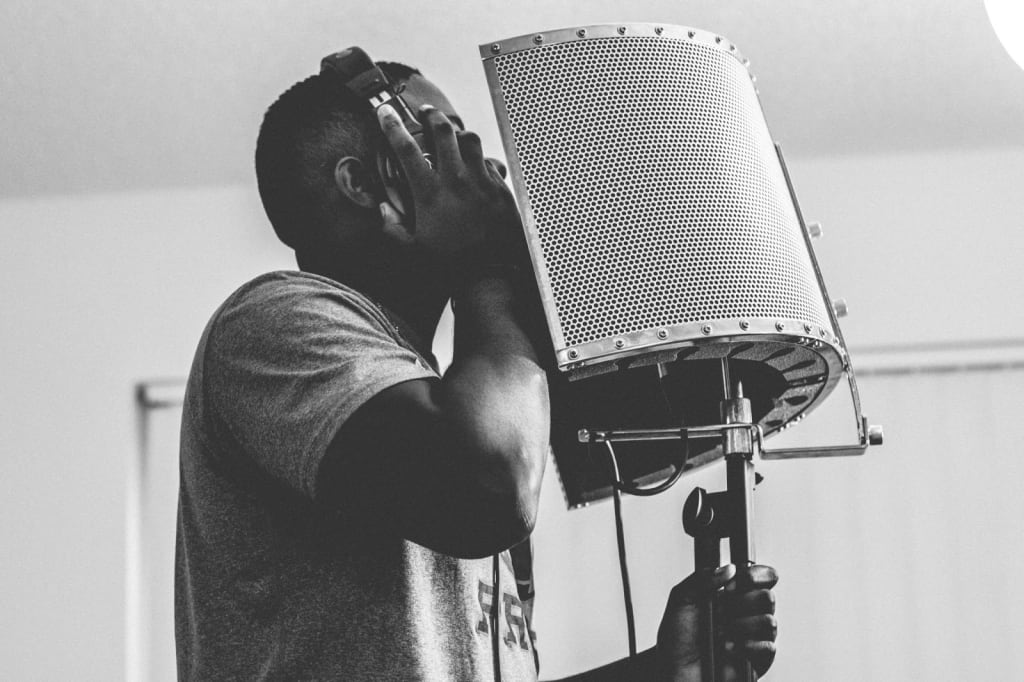How Voice Majors Can Prepare to Record Their Vocals for the First Time
Fundamental Tips You May Not Have Learned in the Classroom

When studying voice, it is highly encouraged that you record your vocals. Whether to easily identify areas needing improvement for improved practice, or to use for demos, auditions, or possibly even recording your own music, if you happen to write songs, recording your voice is a great way to further your music education.
Most people don’t like to listen to the sound of their voice, and often when singing the first few takes of recording your voice are going to sound, well... not great. As a singer, you know that you should put some practice into sounding better–but you don’t know how.
Not to worry! Many singers usually have horribly sounding recordings in the beginning, but with practice and some helpful advice, you’ll find that it gets better. There are many ways you can significantly improve your sound to obtain great vocal recordings.
Work diligently on your sound.
If you’re just starting to take one-on-one classes to learn how to sing or if you’ve been working with a voice instructor for years, it’s important to remember that even the most seasoned singers still study under vocal coaches. If you are working towards a particular sound when recording, the only way you’re going to have a chance at success is with work and practice, and a dedicated vocal coach is the best investment you can make to get you there. As a music major, your university or institution should have numerous resources both on, and off of, campus for you to find the instructor that’s right for you.
Voice teachers will take the time to make sure you are warming up your voice in the most effective way possible. That way, you will enter a studio session with the assurance that you have plenty of practice, and warm vocals that are prepared to record well.
Exercise good volume and breath control.
If you’re no stranger to a microphone, you know that breathing can be picked up very easily during recording, or through a speaker/sound system. This is something you want to be mindful of when going to record your vocals. You’ll want to exercise proper microphone technique, and do a sound check in the studio to “get to know” the way that the microphone handles. Some are going to be very receptive to picking up small sounds, while others are not.
Another helpful tip is to mark your music where you’ll be taking your breaths, so that you can be cautious about distancing yourself from the microphone, so the sound is not picked up, or not picked up loudly. You can move closer to the mic when the sound gets softer, and away as it gets louder to help level out the fluctuation as well.
The consonant sounds also give way to the vowel sounds you want to enhance during a recording. Make sure the sounds are pure, round, and open. They allow for a good flow to carry out a sound, and a lot of singers who have worked with recordings know that there is a difference with how you shape your vowels to make the proper sound. Experiment with that during your sound check to be sure you’re producing a proper round vowel.
There are certain words you should make sure you take notice of when singing, particularly those that have a “p” or a “b” in them because they will create a popping noise in the microphone. You also create extra sounds with words that have an “s” or an “f” in them, so you’ll want to be careful not to over-enunciate them into the microphone to create those loud noises. Try a different angle, or distance yourself further away from the microphone to reduce those bursts of sound. You can also work on your timbre to create the proper sound you want to hear when you are recording.
Evoke emotion.
All singers know that to achieve the desired outcome from singing a song they must first connect with the song or story that they are telling. Since when recording, people will only be listening to you and won’t be able to see you, your voice has to show the emotion and portray the feeling you’re trying to achieve. It is not an easy thing to do, but the importance of it is what makes a singer stand out, as it will be something people can relate to and connect with.
A great tip that can help with creating the emotion is to break down your song or piece line by line and associate different feelings that you want to convey with each chunk of lyrics. Use words like sad, nostalgic, heartbroken, or excited, and then put those words into action with your singing. Let your voice lead the listener where you want him/her to go.
Connect to the music as if you were singing specifically to someone or to an audience of people.
Invest in proper equipment.
If you want your voice to sound top notch, pay attention to the equipment you’re using to record. If you have the funds, you can rent studio space, and hire a producer to do your mixing. For most people that’s not easily affordable, so you may need to purchase your equipment yourself. Seek out resources through your university, or find a local shop, that offers student discounts. Specialty music schools may even have recording studios on campus that are intended for student use.
It is easy to tell when someone has done a recording, and their equipment is not up to par–the sound can be tinny or even crackly. Do your research and find a good microphone and system for mixing, if you intend to edit your own tracks. Make sure you take into account your voice type and what type of equipment works best with it.
Don’t be shy.
Now that you’ve warmed up your voice, invested in the right equipment, and practiced your sound with your vocal teacher, you are ready to record. Put your best foot, or in this case, voice, forward. Don’t let nervousness or stage fright get the better of you, and perform to your potential. Music is a passion, and if you’re passionate enough to make it your major or main study, you should be prepared to learn how to record your voice properly to help further your musical endeavors.
About the Creator
Donna Maurer
Donna is a hustling freelance writer who spends her time writing about everything from the music industry to the latest beauty and wellness trends. She contributes to numerous blogs and enjoys sharing insights from her own life experiences.






Comments
There are no comments for this story
Be the first to respond and start the conversation.